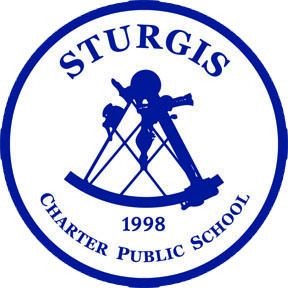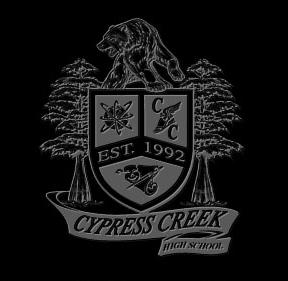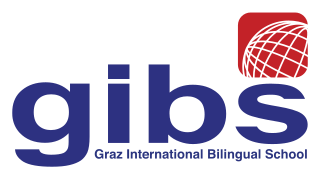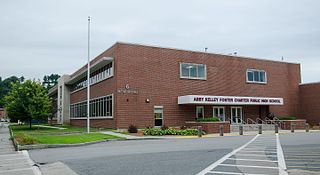Psychology SL & HL
The focus of this course is the systematic study of behavior and mental process. The program studies three main perspectives as influences on human behavior: the biological, the cognitive and the sociocultural. It includes the examination of optional topics that include health psychology, abnormal psychology, developmental psychology, sports psychology and psychology of human relationships. Finally all students have to carry out their own experimental study as an internal assessment. Students at higher level study two options whereas standard level students study only one. [4]
Each of the perspectives should be explored using the following four compulsory topics:
- development and cultural contexts
- framework
- methodologies
- application.
The aims of the psychology course at HL and at SL are to:
- interpret and/or conduct psychological research to apply the resulting knowledge for the benefit of human beings
- ensure that ethical practices and responsibilities are implemented in psychological inquiry
- develop an understanding of the biological, social and cultural influences on human behaviour
- develop an understanding of different theoretical processes that are used to interpret behaviour, and to be aware of how these processes lead to the construction and evaluation of psychological theories
- develop an awareness of how applications of psychology in everyday life are derived from psychological theories
- develop an appreciation of the eclectic nature of psychology
- understand and/or use diverse methods of psychological inquiry.
First, students must choose an experiment to replicate. When conducting the experiment, the IB demands that certain ethical guidelines be followed. [5] After the experiment has been completed, a written report must be produced detailing the experiment. The students are required to The external assessment, which is administered in May or November; the second year of the course is specially focused to the development of this assessment where the students are introduced to a variety of studies and the student is expected to draw connections between them. The test is divided into two parts, which are referred to as "papers". Using the internal and external assessment, IB calculates a grade value of one through seven. [6]

Multiple choice (MC), objective response or MCQ(for multiple choice question) is a form of an objective assessment in which respondents are asked to select only correct answer from the choices offered as a list. The multiple choice format is most frequently used in educational testing, in market research, and in elections, when a person chooses between multiple candidates, parties, or policies.
Further Mathematics is the title given to a number of advanced secondary mathematics courses. The term "Higher and Further Mathematics", and the term "Advanced Level Mathematics", may also refer to any of several advanced mathematics courses at many institutions.
The Hong Kong Advanced Level Examination, or more commonly known as the A-level, conducted by the Hong Kong Examinations and Assessment Authority (HKEAA), was taken by senior students at the end of their matriculation in Hong Kong between 1979 and 2012. It was originally the entrance examination in University of Hong Kong until the introduction of the Joint University Programmes Admissions System (JUPAS) in 1992, which made it the major university entrance examination until academic year 2011/2012.

The Sturgis Charter Public School is a dual-campus charter school located in the village of Hyannis, Massachusetts, United States. The school received its charter in February 1998 and opened in September for the 1998–1999 academic year with 162 freshman, 15 faculty and staff, a newly renovated facility, and a $1.2 million budget. The school philosophy is International Baccalaureate for all students.
The International Baccalaureate Diploma Programme (IBDP) is a two-year educational programme primarily aimed at 16-to-19-year-olds in 140 countries around the world. The programme provides an internationally accepted qualification for entry into higher education and is recognized by many universities worldwide. It was developed in the early-to-mid-1960s in Geneva, Switzerland, by a group of international educators. After a six-year pilot programme that ended in 1975, a bilingual diploma was established.
Theory of Knowledge (TOK) is a compulsory core subject of the International Baccalaureate Diploma Programme covering, for example, epistemological topics. It is marked on a letter scale (A-E) and aims to "provide an opportunity for students to reflect on the nature of knowledge, and on how we know what we claim to know." Students who attain an E will not be able to receive their final IB Diploma.
The Group 1: Studies in language and literature subjects of the IB Diploma Programme refer to the student's first language. Three courses are available: Language A: literature, Language A: language and literature and an interdisciplinary subject, Literature and performance. Students who complete two group 1 subjects, or complete a group 3 or 4 subject that is of a different language of the group 1 subject taken by the candidate, are eligible to be awarded a bilingual IB Diploma on the condition that the candidate obtains a level 3 or greater in both subjects.
The Group 2: Language acquisition subjects of the IB Diploma Programme consist of the nearly 80 additional languages offered and may be studied at the following levels: B, or ab initio. Latin and Classical Greek are also offered and may be taken at SL or HL. To earn an IB Diploma, a candidate must study an additional language, though a second Language A may be taken instead of studying that language as a Group 2 subject.
The Group 4: Sciences subjects of the International Baccalaureate Diploma Programme comprise the main scientific emphasis of this internationally recognized high school programme. They consist of seven courses, six of which are offered at both the Standard Level (SL) and Higher Level (HL): Chemistry, Biology, Physics, Design Technology, and, as of August 2024, Computer Science is offered as part of the Group 4 subjects. There are also two SL only courses: a transdisciplinary course, Environmental Systems and Societies, that satisfies Diploma requirements for Groups 3 and 4, and Sports, Exercise and Health Science. Astronomy also exists as a school-based syllabus. Students taking two or more Group 4 subjects may combine any of the aforementioned.
Luther College is a university college and high school located in Regina, Saskatchewan, Canada. The university campus of Luther College is located on the campus of the University of Regina and serves as a federated college of the university. The high school is located at 1500 Royal Street. There are approximately 1000 students and 300 employees at Luther College with an approximately $20.1M budget across both campuses. As a federated college, Luther College is administratively and financially independent, but academically integrated with the University of Regina. Luther students will earn a University of Regina degree when they graduate. University of Regina.
The Group 5: Mathematics subjects of the IB Diploma Programme consist of two different mathematics courses, both of which can be taken at Standard Level (SL) or Higher Level (HL). To earn an IB Diploma, a candidate must take either Mathematics Applications and Interpretation (SL/HL) or Mathematics Analysis and Approaches (SL/HL), as well as satisfying all CAS, TOK and EE requirements.
The Group 6: The Arts subjects of the International Baccalaureate Diploma Programme consist of five courses at both Standard Level (SL) and Higher Level (HL): Dance, Music, Theatre, Visual Arts, and Film. The transdisciplinary course Literature and Performance is also available at Standard Level. Students seeking the IB Diploma may substitute courses from the other five Subject Groups instead of taking a Group 6 course. A school-based syllabus devised by an IB World School, as approved and externally moderated by the IB, may also form the basis for a course taken in place of a Group 6 course.

The Toronto French School (TFS), founded in 1962, is an independent, bilingual, co-educational, non-denominational school in Toronto, Ontario, Canada. Charles III, as King of Canada, is the royal patron of the school. The school rebranded in 2011 to become TFS – Canada's International School.

Penilaian Menengah Rendah was a Malaysian public examination targeting Malaysian adolescents and young adults between the ages of 13 and 30 years taken by all Form Three high school and college students in both government and private schools throughout the country from independence in 1957 to 2013. It was formerly known as Sijil Rendah Pelajaran. It was set and examined by the Malaysian Examinations Syndicate, an agency under the Ministry of Education.

Cypress Creek High School is located in Orlando, Florida, and serves students in grades 9 through 12.
C2 Proficiency, previously known as Cambridge English: Proficiency and the Certificate of Proficiency in English (CPE), is an English language examination provided by Cambridge Assessment English (previously known as Cambridge English Language Assessment and University of Cambridge ESOL examination).

The International School of Beaverton (ISB) is an option school that serves grades 6-12 in the Beaverton School District. It is the only school in the district to be a full International Baccalaureate (IB) school, where all students take IB courses and complete additional work for the Middle Years Programme (MYP) and the Diploma Programme (DP), including the personal project and the extended essay. In 2012 and various other years, U.S. News & World Report ranked the school as the best public high school in the state, and 20th in the nation. The current principal is Andrew Gilford and the assistant principal is Kelly Bordwell.

The Graz International Bilingual School (GIBS) is an Austrian bilingual (English/German) university preparatory semi-independent charter school Gymnasium in Graz, Austria. The school mainly focuses on languages, offering German, English, Russian, Latin, French and Spanish. Students graduate with the Austrian Matura, the IB Diploma or with both, assuming that they meet the criteria necessary.

Abby Kelley Foster Charter Public School is a K–12 school located at 10 New Bond St., Worcester, Massachusetts, United States in former Heald Machine Company buildings. The school was founded in 1998.

Ritsumeikan Uji Junior and Senior High School (立命館宇治中学校・高等学校) is a private school located in the city of Uji south of Kyoto, Japan. The high school opened in 1994 and the middle school opened in 2003. It is currently one of four junior and senior high schools affiliated with Ritsumeikan University. The Ritsumeikan family of schools also includes Ritsumeikan Asia Pacific University, located in Beppu, and Ritsumeikan Primary School, located in north Kyoto.







